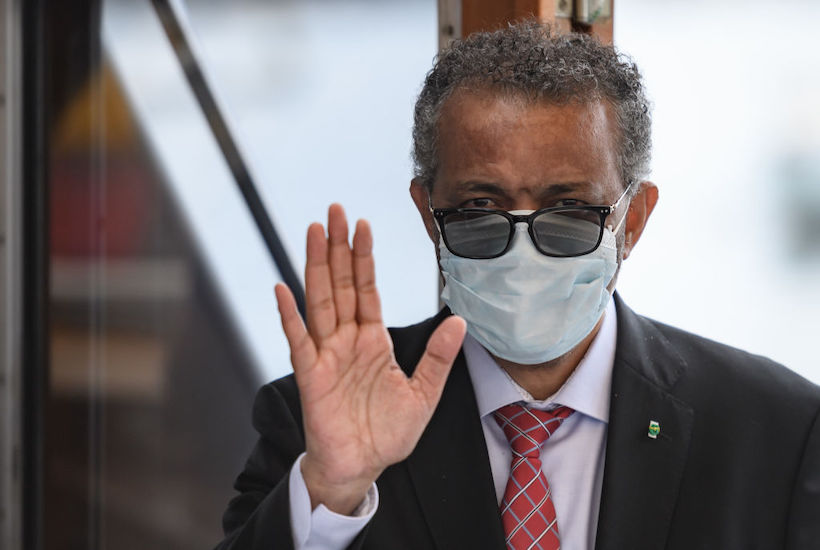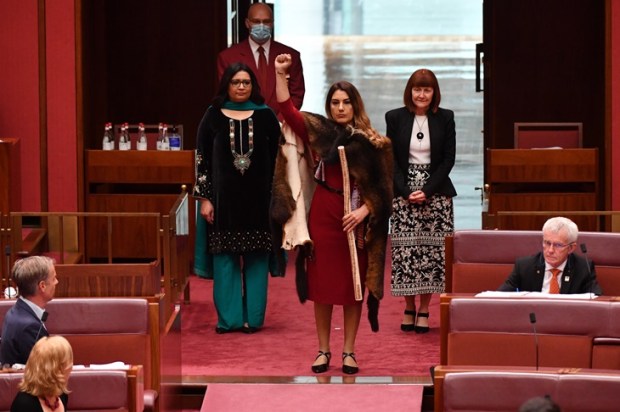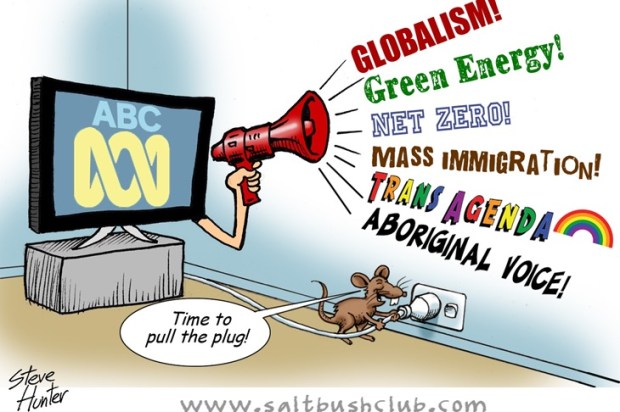What are the odds of the WHO investigators discovering the actual origins of the Covid-19 virus? Even if the investigation team had been there a year ago, when the pandemic was just starting, it would have struggled. China is not only highly secretive about the virus, but the WHO has been extraordinarily meek in its dealings with China.
At the beginning of the pandemic, in January last year, the WHO warned countries against evacuating their citizens from Wuhan, saying there was no need to overreact. In February it said there was no need for measures that “unnecessarily interfere with international travel and trade”. By April it was describing the disease as “Public Enemy Number One”.
Also in January, China convinced the WHO not to declare an international emergency. In February WHO leaders agreed their own expert committee should not visit Wuhan’s live animal market. China declared airborne transmission did not occur, to which WHO raised no objections.
The same month WHO publicly praised China for its “speedy response” to the virus and repeatedly thanked the Chinese government for sharing the genetic map of the virus “immediately,” describing its work and commitment to transparency as “very impressive.”
In reality, Chinese authorities delayed releasing the virus’s genome until another lab published it. Even then, they stalled at least two more weeks before providing WHO with detailed data on patients and cases. Warnings by Taiwan in late 2019, which is blocked from WHO membership by China, were disregarded.
In April WHO declared that healthy people do not need to wear face masks to prevent coronavirus spread. It has changed its position twice since then. By only referring to studies that highlighted the severity of disease in Covid-19 cases among smokers, it ignored numerous other studies that found smokers were less likely to contract the disease in the first place which, on balance, made smoking somewhat protective.
It was not always like this. The WHO was created in 1948 as part of the United Nations system with a mission to “direct and coordinate international health”. It has made a difference: its international reference materials, for example, promote cooperation on health issues and its early focus on developing countries and infectious diseases like smallpox, polio and diphtheria saved many lives. Indeed, the eradication of smallpox is its finest achievement.
However, more recently it has turned its attention to non-communicable diseases. This covers a vast range, from cancer, diabetes and heart disease to mental health, violence and injury prevention, sexual violence, elder abuse, road safety, drowning and the needs of the disabled. From focusing on a relatively few infectious diseases in developing countries, it now overwhelmingly concerns itself with modifying lifestyle choices, including drinking and smoking, in developed countries.
This change of approach has not helped achieve positive outcomes. When swine flu occurred in Mexico in 2009, it took three months for WHO to declare it a pandemic. By then there were 28,000 cases in 74 countries. In 2014 WHO lost control of the Ebola outbreak, requiring the US and several other nations to deploy more than 5,000 military personnel at the request of the affected countries, with an ad-hoc UN committee taking control. The outbreak eventually killed 11,310 people, paralysed the health systems of Guinea, Liberia and Sierra Leone for months and caused worldwide panic. Prominent scientists judged the WHO’s response to be an “egregious failure”.
The WHO has also been criticised for failing to address the anti-vaxxer movement. Whereas measles was almost eradicated from the world, it is now on the rise because of the number of people refusing to have their children inoculated.
The Director General of the WHO, Dr Tedros Adhanom Ghebreyesus, was elected in 2017 with Chinese support. Tedros, previously Ethiopian Health Minister and Foreign Minister, is not a medical doctor despite appearances – his doctorate from England’s University of Nottingham was based on research investigating the effects of dams on the transmission of malaria in the Tigray region.
He is also controversial. In 2017 he named Zimbabwe’s leader, Robert Mugabe, a “goodwill ambassador” for health. There have also been calls for his prosecution for genocide over his alleged involvement in directing Ethiopia’s security forces.
In fairness, WHO’s budget is small — about $2.3 billion a year — clearly insufficient to take on such a broad range of issues. Why nanny state issues such as healthy eating and physical exercise should take resources away from diseases like malaria, which continue to cause millions of deaths, is difficult to fathom. And now Covid has revealed an alarming lack of objectivity.
President Trump withdrew funding from WHO until it reconsidered its approach and relationship with China. President Biden has now restored funding without conditions, with Dr Anthony Fauci leading the US delegation. It is hard to see any improvement emerging from that.
David Leyonhjelm is a former senator for the Liberal Democrats.
Got something to add? Join the discussion and comment below.
Get 10 issues for just $10
Subscribe to The Spectator Australia today for the next 10 magazine issues, plus full online access, for just $10.


























Comments
Don't miss out
Join the conversation with other Spectator Australia readers. Subscribe to leave a comment.
SUBSCRIBEAlready a subscriber? Log in